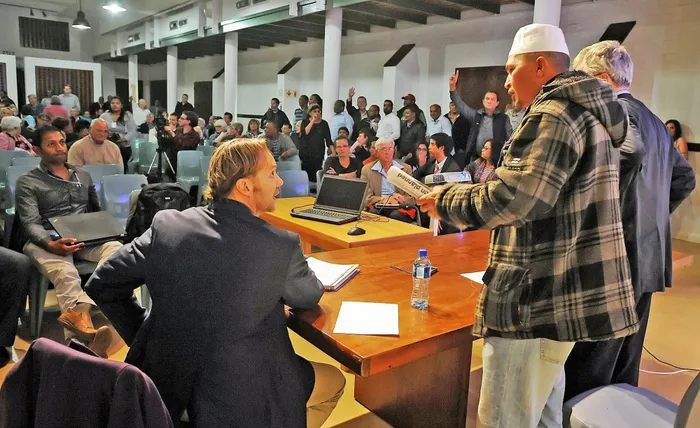Capetonians weigh in on the proposed municipal budget, applauding the mayor

Citizens are encouraged to participate in the upcoming meetings where the draft will be explained and broken down to help understand it better. Picture: David Ritchie African News Agency (ANA)
Cape Town - There's hope for fruitful public participations across the Metro as ratepayers say the mayor's draft budget is encouraging and addresses current economic issues.
They were responding to Cape Town Mayor Geordin Hill-Lewis’ proposed budget for 2023/2024 financial year.
He announced his R69.9 billion plans at a council meeting held on March 29. Public participation is expected to run until May, giving residents an opportunity to make their voices heard.
The priority list includes relief funding, property rebates, upgraded water and sanitation infrastructure and attempts to end load shedding.
Jeff Paulse of the Gleemoor Civic Association encouraged the public to take advantage of the upcoming engagements, saying it is an opportunity for all to be "fully informed, stay involved in addressing local issues and give their input. It is pointless to shout from a distance.“
“Let us applaud the mayor for investing in the poor, that indigent relief fund and rebate increase will go a long way in many households. Also the plan to eradicate crime, I hope our community will benefit from it as we want a zero crime rate, as well as the plan to address electricity issues. That's what everyone wants the most, to do away with this load shedding and pay a reasonable price for power. We're aware it's not the City's fault that we find ourselves in this situation, hence every effort they make to bring solutions is applauded," he said.
Isaac Jenecke, the chairperson of the Kuils River Civic Association said: “The mayor is trying to counter the effects of the economy by investing in operational expenditure and as well as create stability by securing infrastructure. He does it with the ideas formulated by his party policies.”
Jenecke, however, pointed out that: "his challenge will be to be seen to be effectively eliminating hunger, homelessness and (improving) basic services, to allow the private sector to survive and create growth."
Caroline Marx, chairperson for the Milnerton Residents Ratepayers' Association added: "It is encouraging to see the massive increase in spending on water and sanitation infrastructure that is so needed to protect community and environmental health, together with upgrades to informal settlements and improved services.
"If the City can meet its goal of protecting residents and businesses from four stages of Eskom's load shedding, it would provide major relief and encourage business investment locally."
She said is was unfortunate that national government's failure to address crime had forces the City to invest heavily in security. She also welcomed the increased number of shelter beds "which will lead to a decrease in the number of homeless camping in public spaces."
Announcing the budged Hill-Lewis said: “The balancing act in a big City’s budget between the needs of vulnerable residents, the scale and scope of future planning, and the economic pressures on ratepayers is one of the toughest challenges to solve.
"We are considerably widening the safety net of care and relief for vulnerable Capetonians. And we are making possible the most ambitious future planning and investment ever undertaken by this City. We have done so with the utmost care and respect for the City’s ratepayers.
"It is both a progressive budget in its pro-poor focus, and a proactive budget that looks and plans far ahead. That’s why we call this the ‘Building Hope’ budget – real hope for the people of Cape Town, and a beacon of hope for the rest of South Africa," said Hill-Lewis.